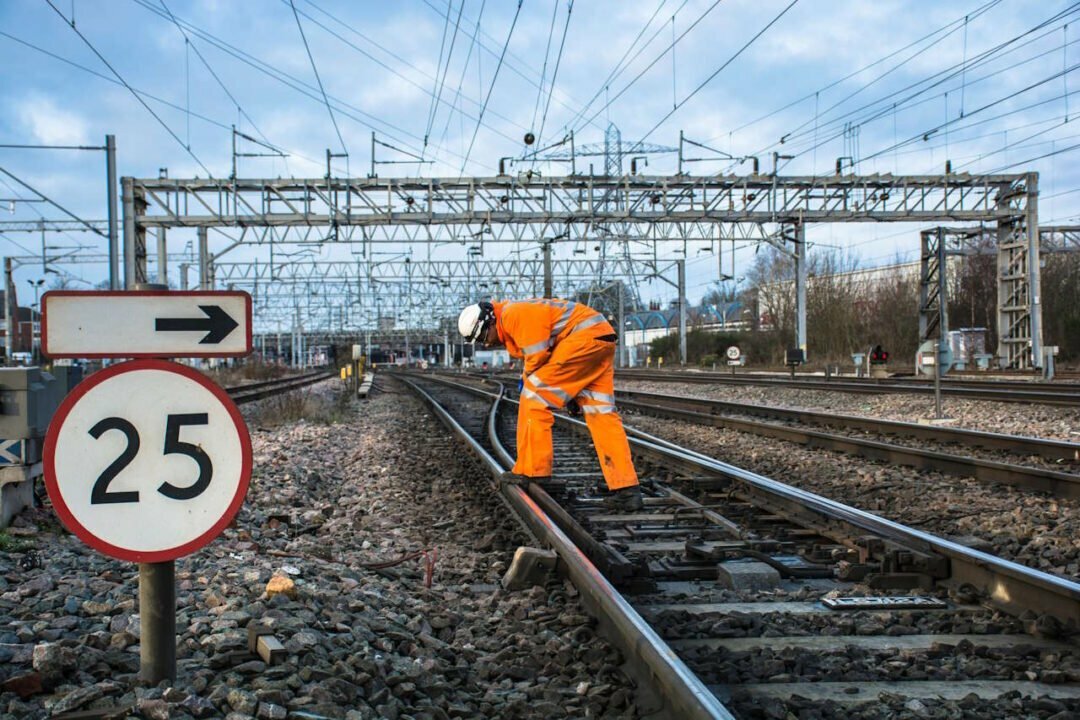The Railway Industry Association (RIA) has published its new strategy aimed at securing a lower cost and higher performing net zero railway by the middle of the century.
Key findings in the new report include the identification of an additional 15% of routes which could be electrified.
If that move was to be adopted, it would mean that 100% of passenger services and 95% of freight services would gradually be decarbonised by 2050.
The UK Government committed, last month, to increase the proportion of the rail network which is electrified to 51% from the present 38% but the additional commitment would have a range of additional benefits.
“Ordering a fleet of battery-electric trains, a strategic and a consistent approach to electrification and quick green wins on less intensively used routes can all help achieve a more efficient and low-carbon railway by 2050.”
David Clarke, Technical Director at RIA
The report also highlighted the fact that around 33% of the network does not need to be electrified, with decarbonisation being carried out through the use of battery-powered trains.
The RIA is encouraging the acceleration of orders for new battery-electric trains, underlining the fact that the benefits they provide would put no additional strain on public finances.

The RIA acts as the voice of the UK railway supply industry, with a membership of more than 360 companies and another key point in their findings underlines the current uncertainty around the future of UK rail manufacturing capacity.
The organisation claims that a more consistent order book for infrastructure and rolling stock suppliers would lead to additional investment in skills and an improvement in productivity. They also say that making stock procurement decisions now will ease uncertainties about the future.
Urging the adoption of a ‘whole system blueprint', the Association claims that this approach would maximise current infrastructure plans proposed by the Government and would set out a co-ordinated ‘track and train' approach.
That, in turn, would benefit passenger and freight users, relieve pressure on taxpayers and reassure the supply chain.
RIA's newly-published rail strategy pinpoints opportunities for carbon reduction and air quality improvements.
The introduction of newer and more reliable trains would enhance performance while, at the same time, reducing costs and providing enhanced economic benefits by avoiding ‘boom and bust' in the rail supply sector.
The railway supply sector contributes £43bn in economic growth and £14bn in tax revenue each year. It also employs 710,000 people.
“Our analysis provides an ‘art of the possible' strategy for the Government and the railway industry. Ordering a fleet of battery-electric trains, a strategic and a consistent approach to electrification and quick green wins on less intensively used routes can all help achieve a more efficient and low-carbon railway by 2050. Considering this as a ‘track and train' strategy allows us to permanently lower the cost of running the railway.
“Recent RIA-commissioned research by Steer found that passenger numbers will grow between 37% and 97% by 2050, depending on future rail policy. So, it is vital that the Government now makes some decisions on infrastructure and rolling stock which will enable investors, rail planners and suppliers, as well as the wider rail economy, to deliver a better and more sustainable railway for passengers and taxpayers in the future.”
David Clarke, Technical Director at RIA.